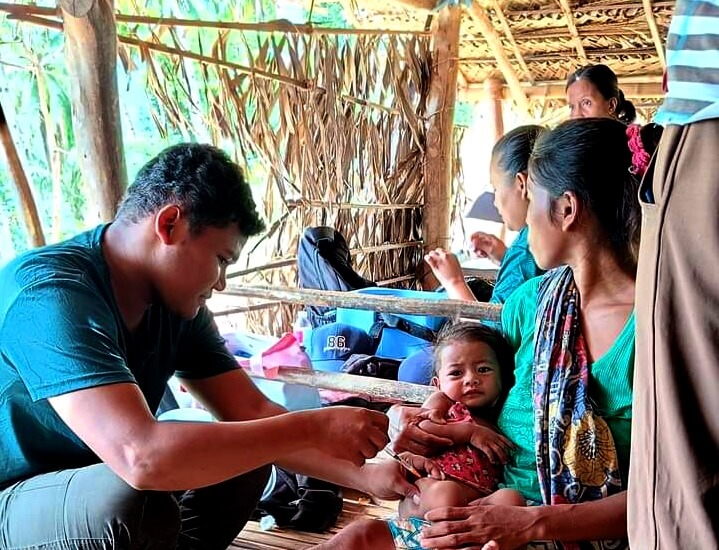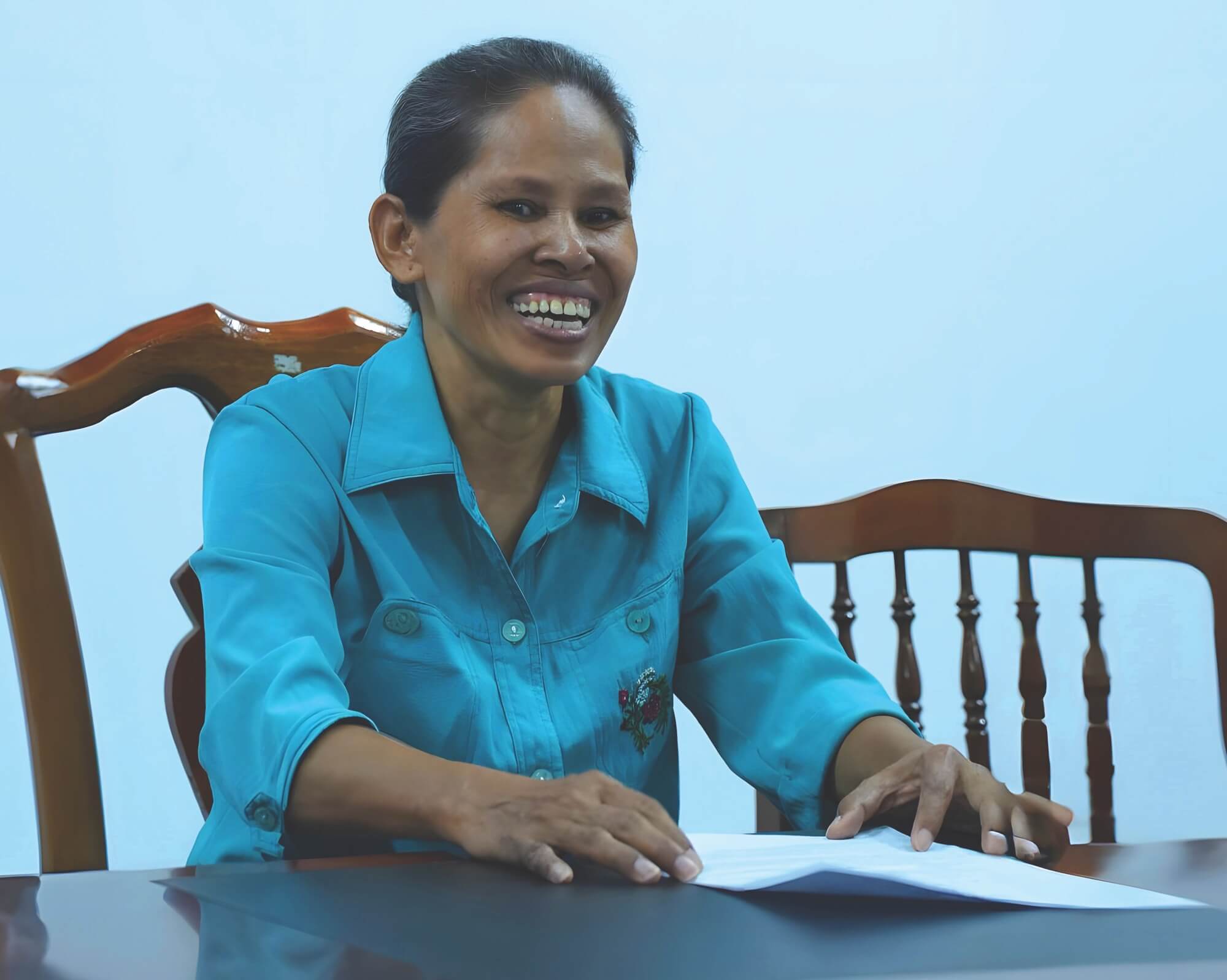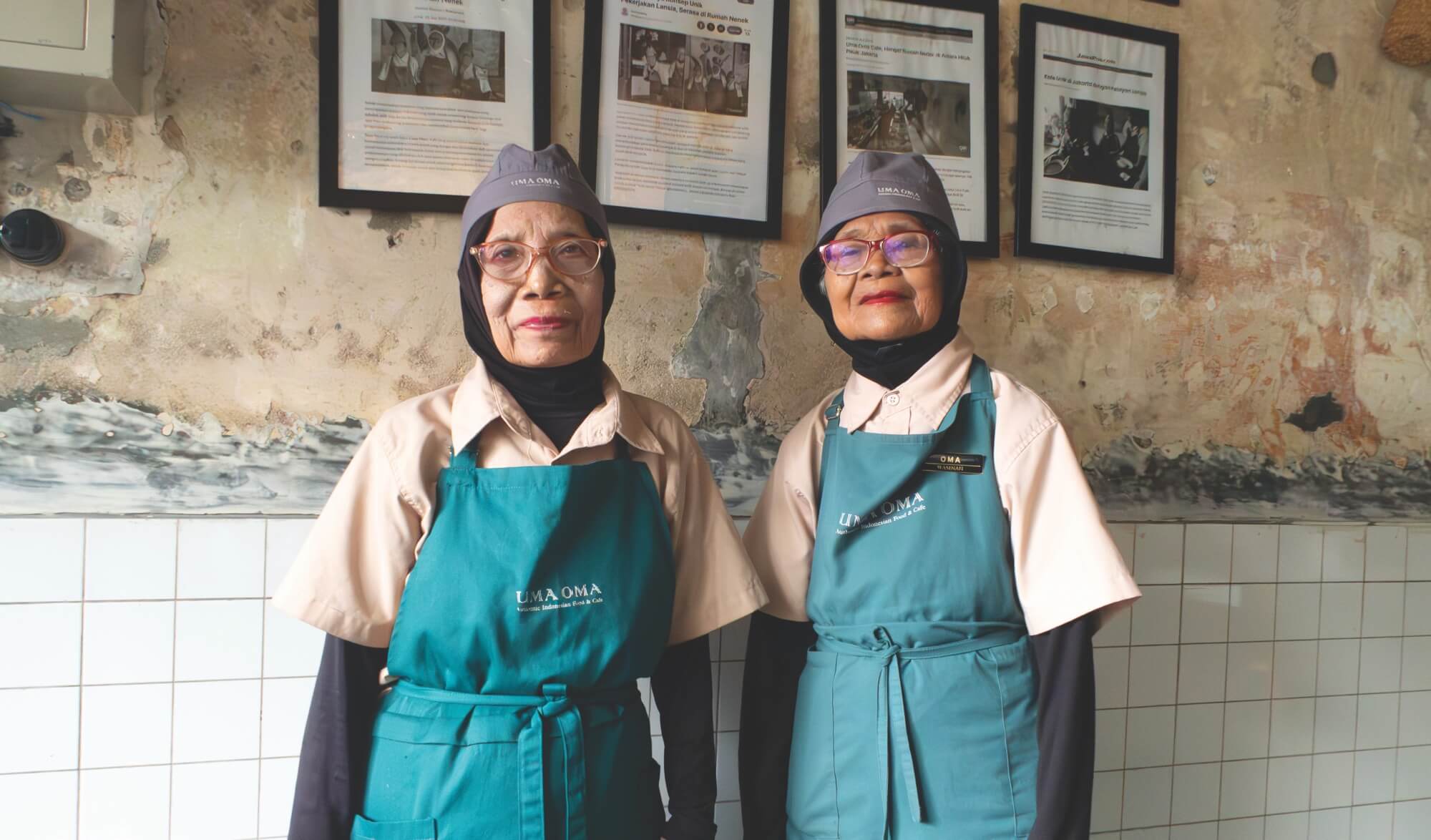



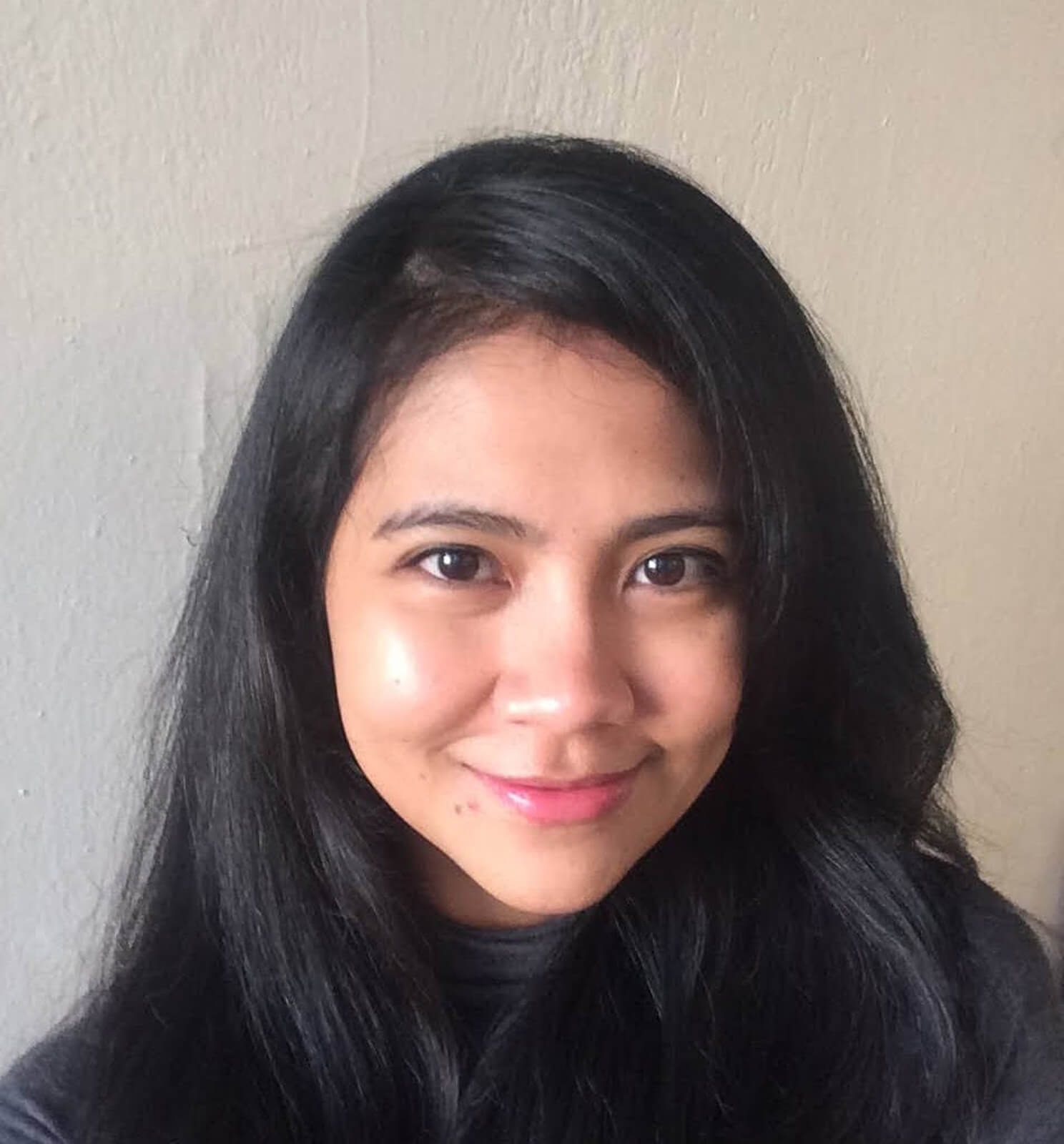
Imagine going to your grandma’s home for a good meal and a warm hug. This appeal made Uma Oma (Grandmother’s House) Cafe the talk of the town when it first opened in September 2023 in Jakarta. Social media posts about the cafe went viral. Within six months, framed articles about the business and its employees adorned the cafe’s walls.
“We hire active older persons as part of our intergenerational team,” said 40-year-old Junaedi Salat, or Juna, the co-founder and CEO of Uma Oma café, to The ASEAN.
Located just a kilometre from the ASEAN Secretariat in Jakarta, the cosy café serves traditional home-cooked meals. Its interiors, designed to resemble an old house, offering a slice of nostalgia and warmth, much like a grandmother’s loving embrace. It’s the secret ingredient to the cafe’s success.
“When we were conceiving this café, we wanted this business to bring value to our customers. We didn’t figure it out back then; we only wanted to have a good business that could benefit many. After my visit to a retirement house, the concept of Uma Oma was born,” Juna recalled.
“We also thought that it is relevant in Jakarta since many come here away from their homes and families. So, this will be a great venue for them to release their longing for their grandma or their mother. I also grew up living with my grandmother; it was a happy memory that I wish I could relive,” he added.
Juna, who previously worked in corporate communications, regularly engaged with charitable organisations, including Yayasan Amal Mulia. During one visit, he was moved by conversations with senior citizens who expressed a deep desire for more active roles and opportunities to return to work. “Their stories and wishes were eye-opening,” he shared.
Older residents from the foundation were eager to join the venture, many of them asking a poignant question: could they find a place in Oma Uma, too?
Although it was just the beginning, with only one outlet, Juna saw immense potential. “This is our pilot project, an example of how generations can coexist and thrive together,” he stated. “There are many things that the senior workers are capable of doing. We do not want to over-promise that we are trying to ‘inspire others to do the same’, but at least the public can see that this can be done.”
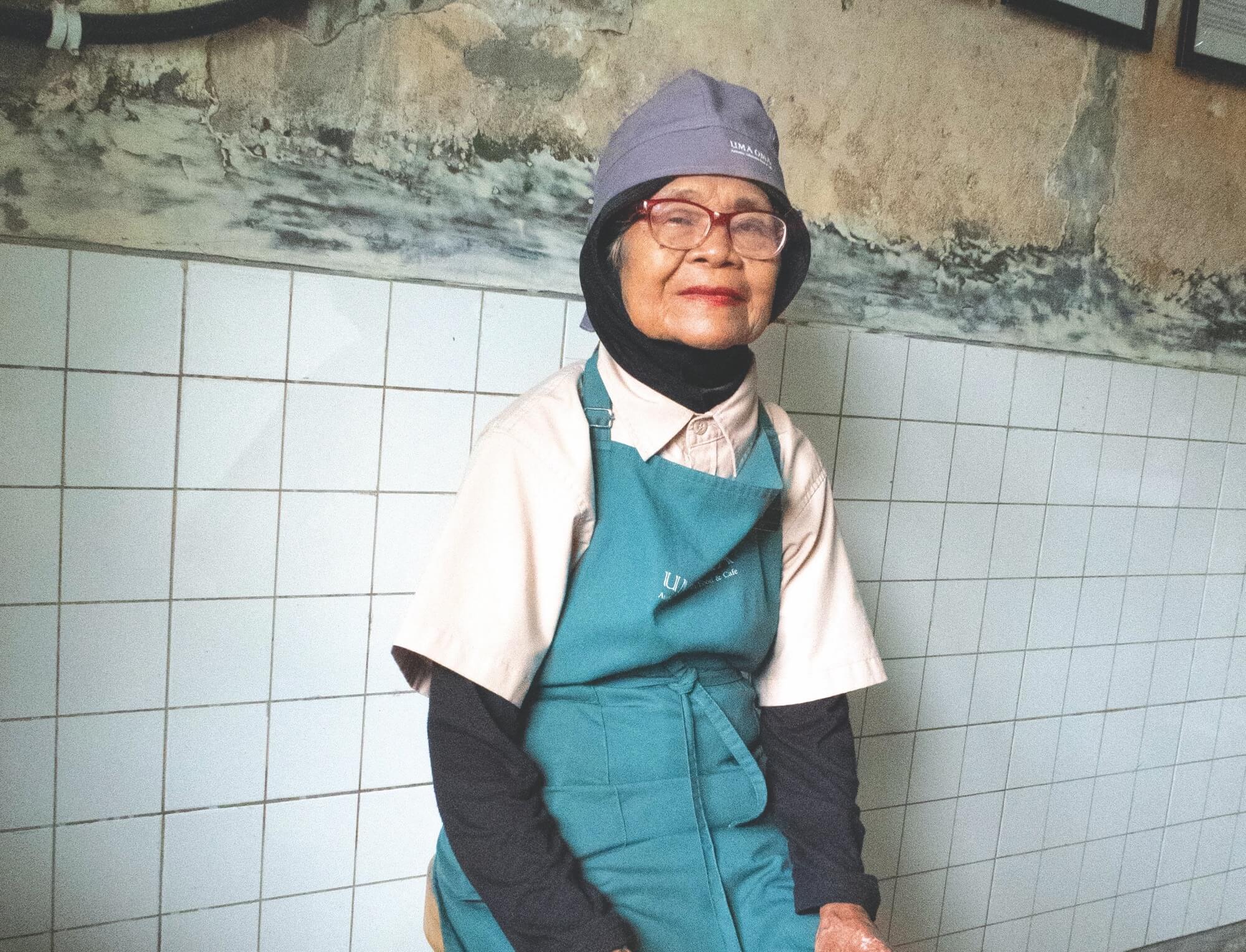
Wasinah
A young couple was reaching for the door handle when Wasinah rose from her bench right behind the door and greeted them, “Welcome to Uma Oma.”
Wasinah, a seventy-nine-year-old woman, is one of the grandmothers working at the café. Born and raised in Yogyakarta, Central Java, she harboured dreams of moving to the capital city. However, at the age of 14, she had to abandon those dreams when she was forced into marriage. “I was crying on the wedding dais. I didn’t want to be married!”
Years later, after having seven children, Wasinah divorced her husband and moved to Jakarta for a new beginning. “I arrived here in 1982,” she recalled. “A friend asked me to join them at a soy sauce factory, but I refused. I chose to sell vegetables at the traditional market with just 1,500 rupiah (10 cents) as my starting capital.”
Later, Wasinah began making rempeyek, a traditional cracker with anchovies or peanuts. Her rempeyek was so good that she managed to work as a supplier in various restaurants across Jakarta. She continues to make rempeyek even 41 years later. From the delicious crackers, she has saved enough to buy land and gradually build her house.
Wasinah’s family has grown significantly; she now has 25 grandchildren from her seven children. Only one of her children lives with her, residing upstairs of her house, which gives her a sense of independent living yet with the comfort of family closeness.
“I work here to fulfil a lifelong dream,” Wasinah shares. “I wish to go on the Umrah pilgrimage. The government provides older adults with a monthly stipend of 300,000 rupiahs (20 US dollars), which, along with my rempeyek sales, is enough to bring food to my table. However, my entire life has been dedicated to my children, but now, with my earnings from the café, I’m saving for my Umrah pilgrimage. I pray for health and time to achieve this dream.”
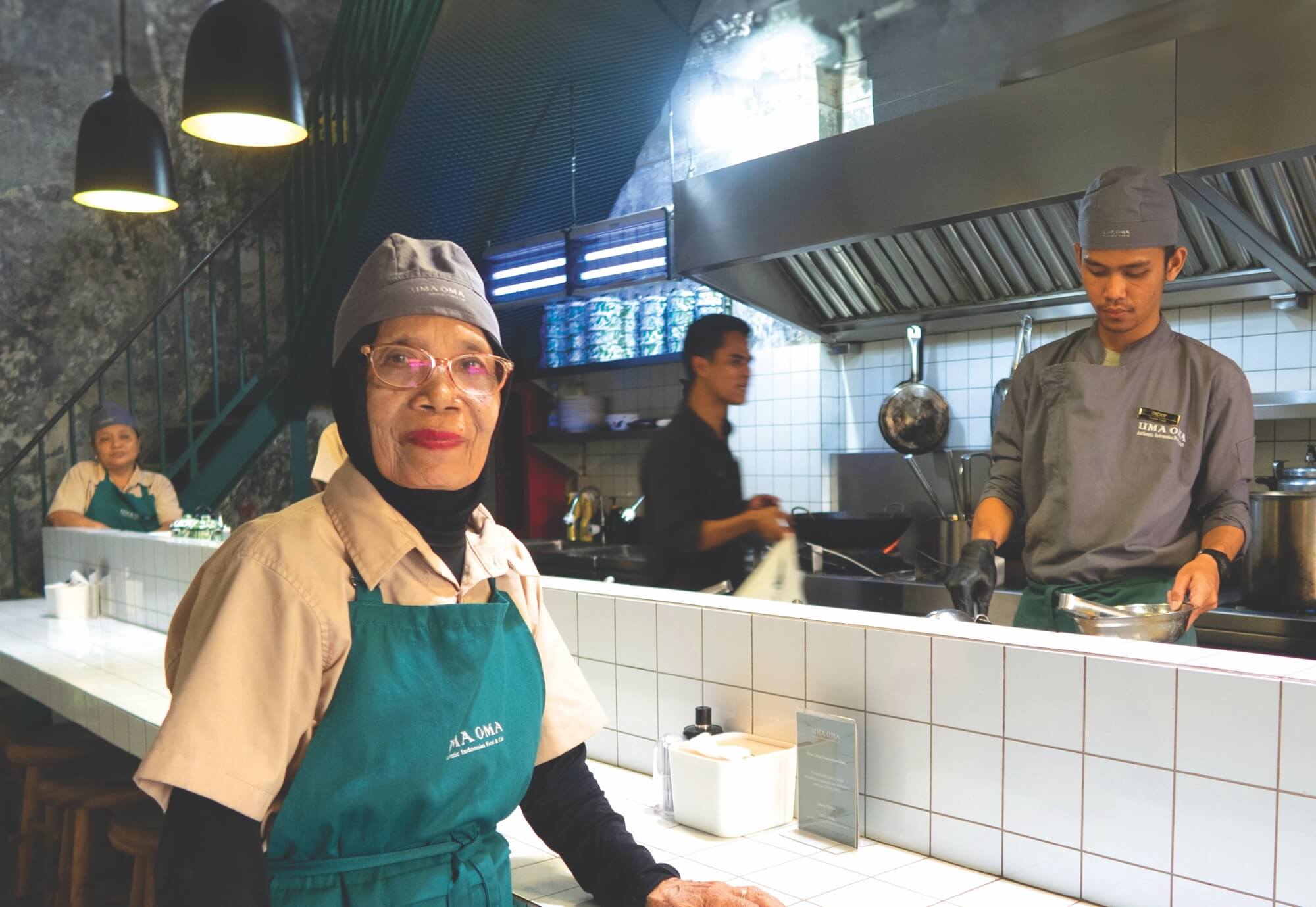
Rustina
Working alongside Wasinah at Uma Oma Café is 81-year-old Rustina, who shares her workspace with Wasinah and her college student granddaughter, Karina. Rustina’s journey to Jakarta began in the 1960s when she moved from Yogyakarta with her parents. In 1981, Rustina’s husband passed away, transforming her role from a homemaker to the family’s sole provider.
“My first job was at a doll factory focused on exports,” Rustina recalled. “Subsequently, I found employment at a garment factory, where I remained until all my three daughters had finished high school. In the 1990s, they persuaded me to retire, promising to take care of me thereafter.”
Despite the loving care from her family, Rustina often found herself lonely during the day, with the house empty as everyone was out working or at school. Her enthusiasm was palpable when the opportunity to work at Uma Oma arose, especially in an environment that values the contributions of older women.
“It was amusing to me because usually, they look for someone young and good-looking to work in a café. But this one, they are looking for ageing women,” she said, chuckling.
“In the past six months, I’ve found a lot of joy working here,” Rustina shared. “I’ve been welcomed with open arms, engaging in conversations with customers who see in me a figure reminiscent of their own grandmothers or mothers.”
In her role as host, Rustina ensures customers feel at home, guiding them through their dining experience with genuine care. Thanks to her active lifestyle, Rustina can adapt quickly to the café environment.
“Although I spend most of my time at home, I stay active. That’s why, when I resumed work here, I adapted well. At home, I’m always busy with chores like laundry, ironing, and cooking, not to mention taking care of my great-granddaughter. On weekends, I even participate in aerobics classes. As a result, I don’t feel tired at all.”
Rustina is committed to fulfilling her one-year contract with the café, saving part of her earnings for an Umrah pilgrimage.
“I hope Indonesia will create more opportunities for older citizens to remain active and employed. I’ve seen on TV that people in their 90s are still working in other countries. We, the older individuals, have much to contribute and should not be underestimated,” she advocated.
Her peers at the foundation look on with a mix of admiration and longing, aware that only a few had the chance to be employed at the café.
“They often say, ‘How wonderful it must be to earn your own keep and feel independent. I wish I could join you,’” Rustina added.
Rustina expressed gratitude for Indonesia’s commitment to providing free healthcare to older people through BPJS (Social Health Insurance Administration Body). “I am thankful to the Lord for granting me the vigour to embrace these opportunities. I pray for continued strength to enjoy precious moments with my grandchildren and great-grandchildren for many more years.”




